Oblivion Battery and Re-Main revolve around two first-year high schoolers, Minato and Kaname, who suffered from amnesia and therefore forgot their incredible athletic abilities from their time in middle school. With a new personality in hand, they didn’t want to continue their former sports but were bribed and blackmailed, respectively, into continuing. Yet, once ensnared, they dedicated themselves and discovered a world of experiences they had missed as top athletes. Since the stories are so similar, you might think that if you’ve seen one, you’ve seen them both, but there are subtle differences between the two anime. Let’s zero in on the content to find out what the stories are about.
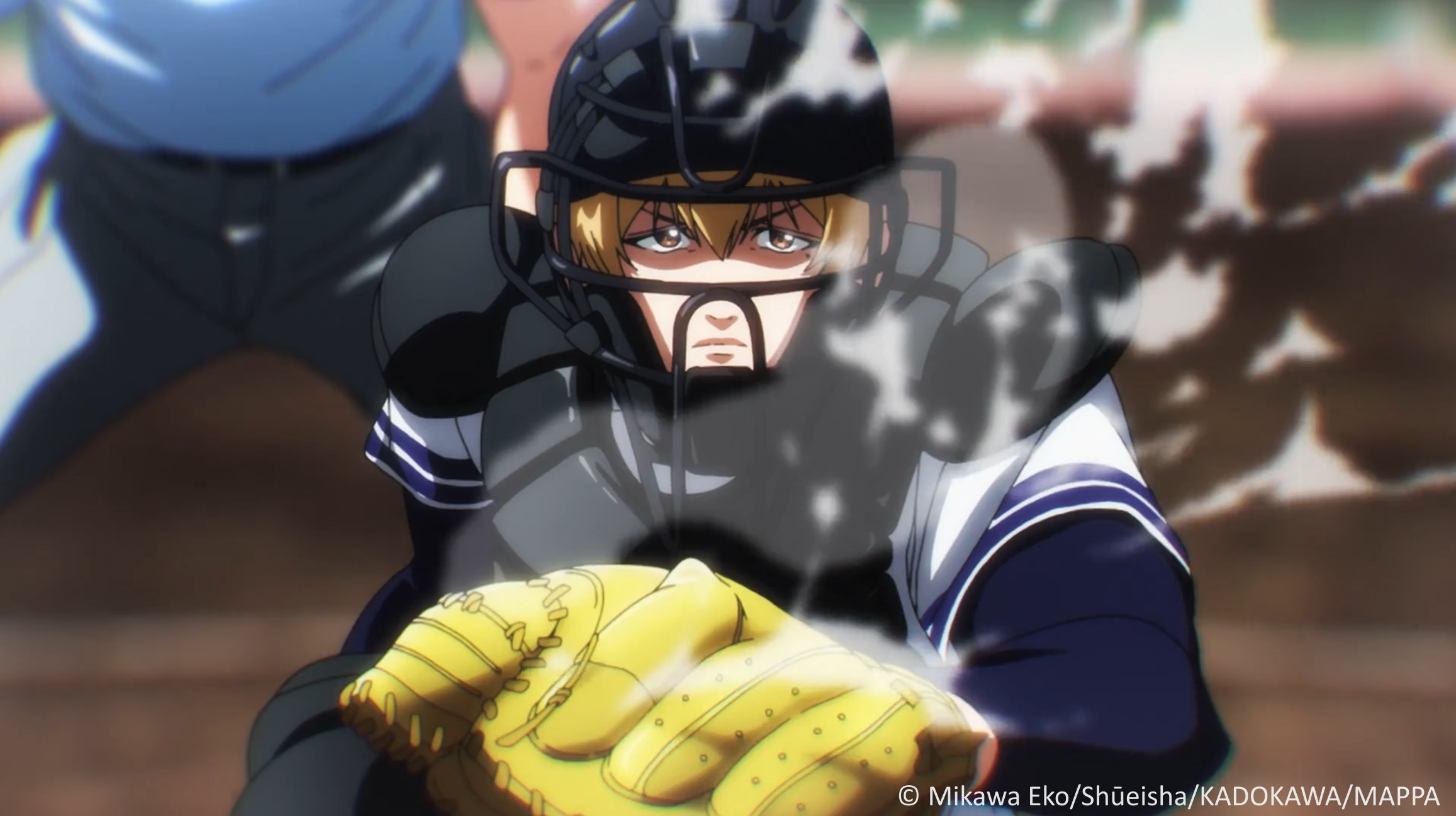
A Complex Matter
At first, I thought it would be wise to learn a bit about amnesia since memory loss lies at the heart of both anime. But, as is often the case, once you dive into a topic, it turns out to be a lot more complex than expected. I read through several websites in search of a simple explanation, but soon felt overwhelmed by the vast amount of information and the complexity of the matter. Additionally, the various medical terms gave me a headache. Basically, “amnesia is when a person can no longer recall information stored in their memory.” There are many possible causes for amnesia and there are just as many types. In the end, I abandoned going into more detail about it in this post. I found solace in the fact, that even though amnesia is the primary cause of what happens in the two stories, the messages they convey are not about memory loss. So, what are they? Let’s take a look.
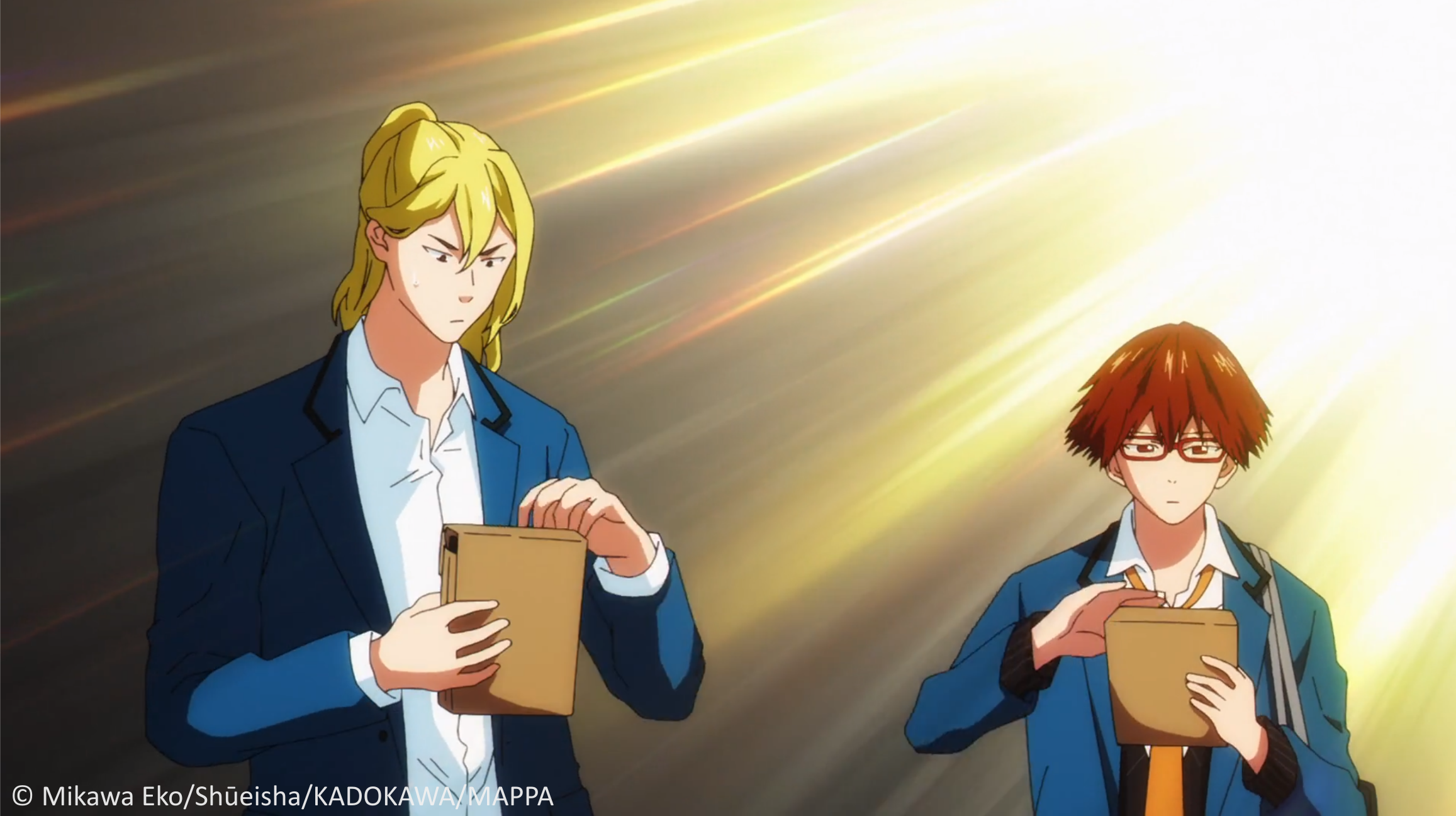
A Fickle heart
Kiyomizu Minato played water polo at the national level during his three years at junior high but lost his memory due to a car accident shortly before graduating. Well, he didn’t lose all his memory. He only forgot that he was a remarkable water polo athlete and his team’s ace. Starting high school, Minato thus joined an unknown public school without a proper water polo team. I said ‘proper’ because there actually was a newly founded club, but its only member was the captain, Jōjima Jō. When Jōjima realized that an elite athlete attended the school, he was determined to secure him for the club. In desperate need of teammates, he chased the unwilling recruit across the school grounds, but to no avail.
Minato’s inclinations to pursue or refuse club membership flickered this way and that, like a candle in the wind. While still at the hospital, he had no desire to play again, but back at home, seeing his mother’s anguish that he didn’t resume playing, he had a change of heart: “To make things normal again, I’ll play water polo again!” he told her happily. However, once in his room, he inspected his bare-chested reflection in the mirror. When he saw that his six-pack fell victim to the involuntary slumber, Minato reversed his decision: “No, no, no, this is impossible! I lost far too much muscle while sleeping for half a year. I’ll just tell Mom that I’m sorry, but I can’t do it.” How could he play a sport that is also known as ‘water wrestling’ without being ripped, right…? With that, his mind was firmly set against bulking and taking up the challenge of getting back into the game. Consequently, he refused Jōjima’s advances… until, by chance, he crossed paths with his junior high crush, Kawakubo Chinu, herself a water polo player at the adjacent private powerhouse school, Rikku High.
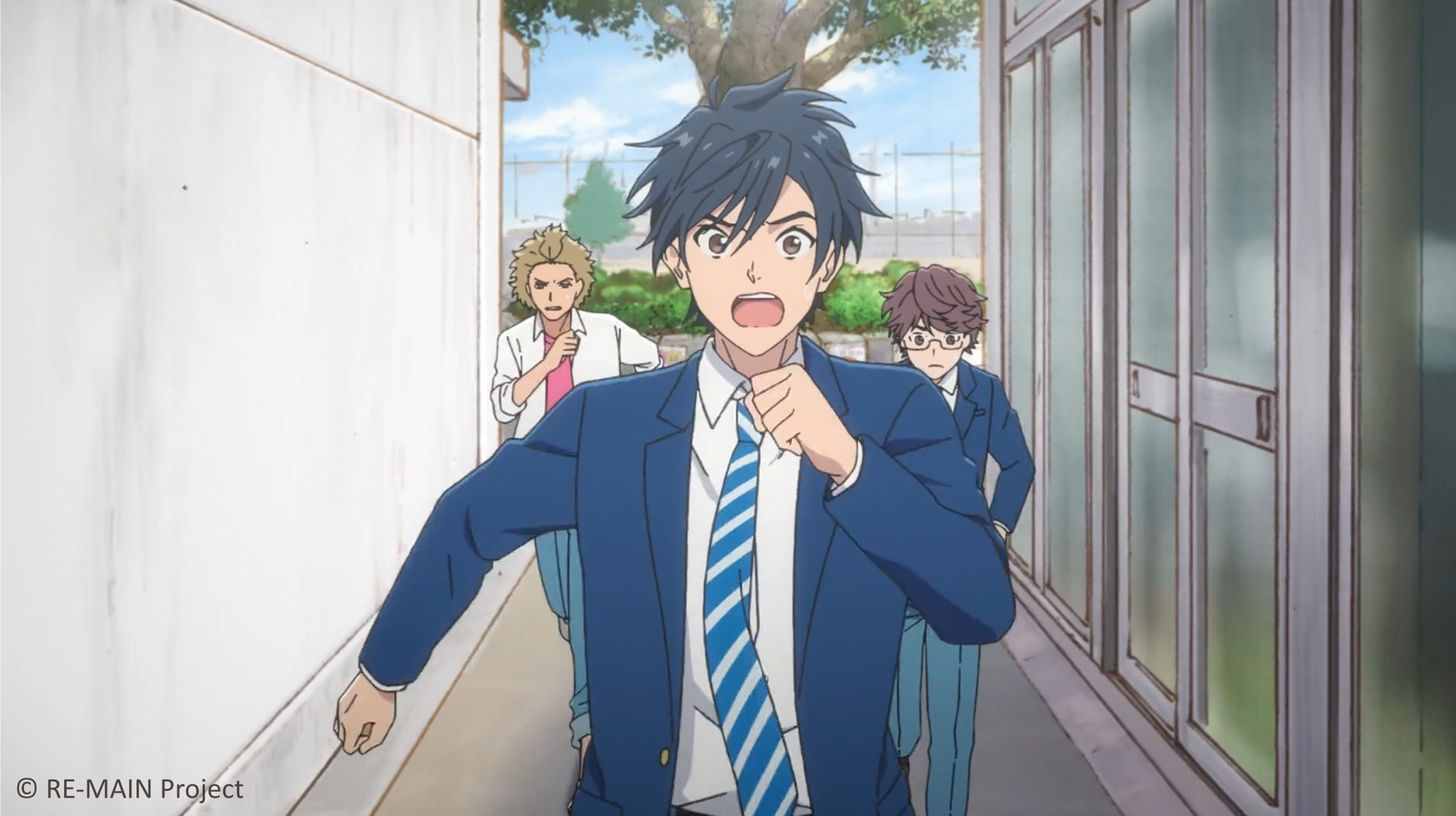
Blackmail and Bribe
Naturally, Minato didn’t remember Chinu. She, on the other hand, remembered him well. After all, it was Minato’s nasty behavior that caused her dear senpai to quit water polo, and for this, she never forgave him. The former Minato was smitten by her and confessed his love in the school’s backyard. Chinu turned him down, but Minato isn’t one to give up easily, neither in sports nor in love. And so, he wrung the promise of a kiss from her should he win the Momotarō Cup, which, of course, he did. Being a good girl, Chinu rewarded the guy she detests with a kiss for his past achievement—even though, at that point, he could remember neither the promise nor the victory. Her motivation for kissing Minato wasn’t driven by integrity, though, but rather by her desire for revenge. Minato, she thought, should take responsibility for her senpai quitting by continuing water polo himself. To achieve this, she lied to him, saying that he also promised to pay her a substantial amount of money if he didn’t make the nationals.
I wrecked my brain to make sense of her reasoning, but in the end, I had to resign to the fact that this will remain a mystery. Well, the makers of the series had to get Minato back into the waters, and what better way than to use female trickery…? So, as it turns out, it was due to a woman’s wrath and scheming that Minato donned his cap and speedos and jumped back into pool waters. By the way, female ‘persuasive powers’ are also crucial to the plot in Oblivion Battery.

Kaname Kei, the protagonist in Oblivion Battery, lost his memory because of an unknown incident. He, too, didn’t lose all his memory, though. He only forgot that he was half of the “diabolic battery,” a destructive force on the diamond, crushing the lives and dreams of every opponent who battled against the duo. Since Kaname had no recollection of his days as merciless “Commander,” he and his battery mate, pitcher Kiyomine Haruka, joined a mediocre high school without a proper baseball team. I said ‘proper’ because the club had only two, confusingly identical, active members. Kaname had no intention of playing ball. He’d rather spend his high school days in bliss, giving and receiving love and peace. However, to Kiyomine, only baseball mattered, and all he desired was to go all-out when pitching into Kaname’s mitt. Luckily, the pitcher knew Kaname’s weak points and bribed him back onto the sandy pitch with a collection of adult videos. By the way, two more players were bribed into joining the baseball club in this manner. Long live the power of women, right…?
So far, the stories are similar: the amnesia, the public school, the protagonists’ reluctance, and the decisive female influence. The biggest difference between the two series is probably my initial opinion about them. Once the end credits of episode one rolled, I was intrigued to continue watching Re-Main but was reluctant to do so with Oblivion Battery. Had it not been for this post, I would’ve dropped the baseball anime after the first episode, probably even midway through. Yet, I’m glad I didn’t, because the idiocy one is subjected to in the first couple of episodes subsides, and the protagonist’s behavior becomes bearable, even a little endearing.
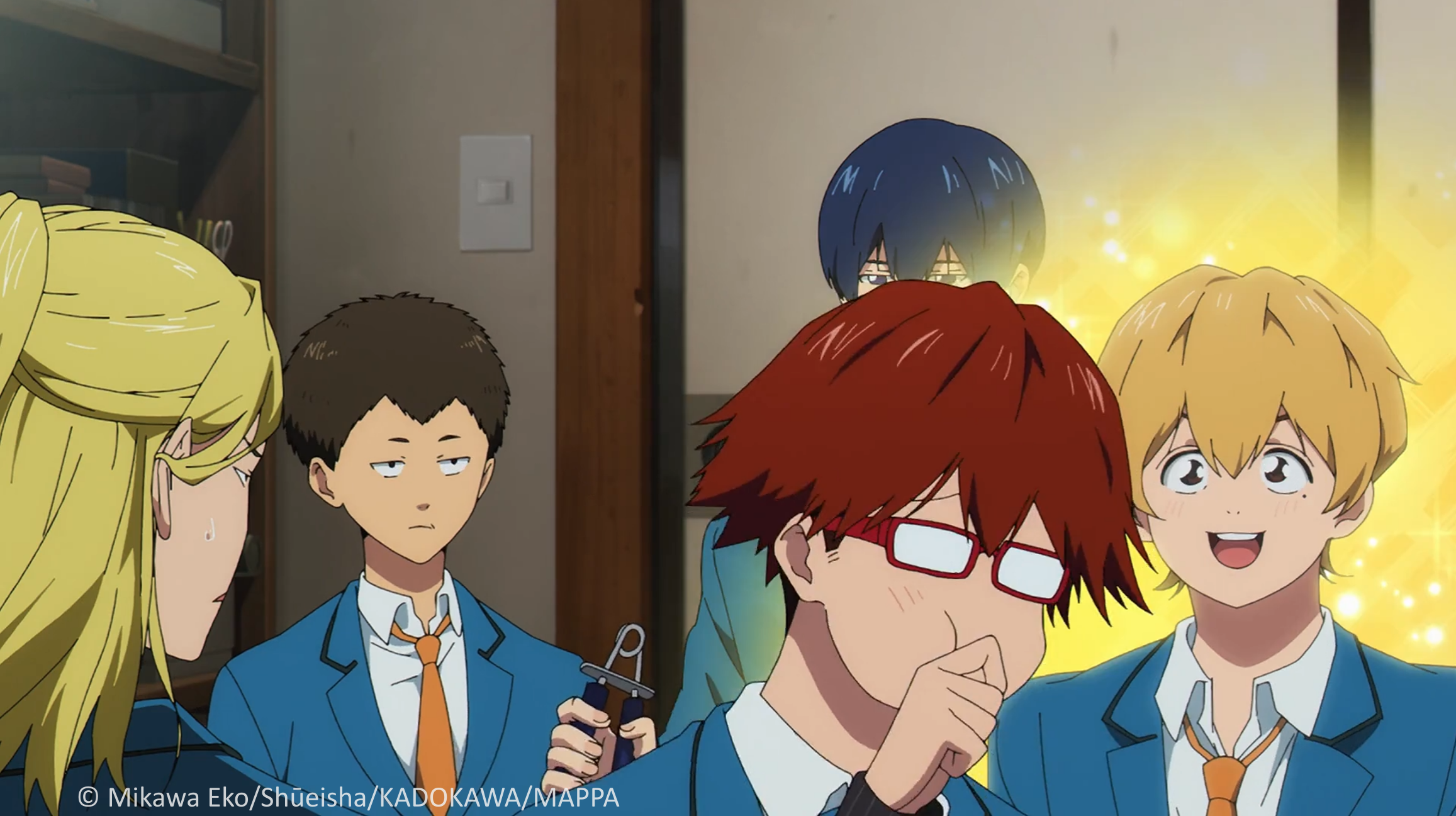
Mr. Nice Guy And The Idiot
Memory loss isn’t the only trait that Minato and Kaname have in common. They also experienced a tremendous change in personality. Their original versions were top athletes in their respective sports, but success came at a price: they were egotistical, ruthless, and didn’t care for the ones they left behind or crushed. The calm, calculated, and merciless Kaname was nicknamed “Commander,” for he consistently steered his pitcher (and team) to victory. Minato might well have deserved to be called ‘Dictator’ for his short-tempered, arrogant, and insolent behavior. Winning was everything to them; defeat was never an option. Yet all this changed after they were stricken with amnesia. By losing their memory, the boys also lost their athletic abilities, and at the same time, the (nasty) attitude that seemed to be an integral part of becoming an elite athlete vanished.
After the accident, Minato turned into a considerate, kind, and gentle teenage boy. The frown of fury was replaced by a bright and infectious smile. He became a sweet boy, lovable through and through. At times, though, his spotless character was excessively good-natured. Well, I guess, for the story’s point to hit home, he had to be constructed in this manner. That way, when his former self re-emerged, he came across as excessively mean-spirited.
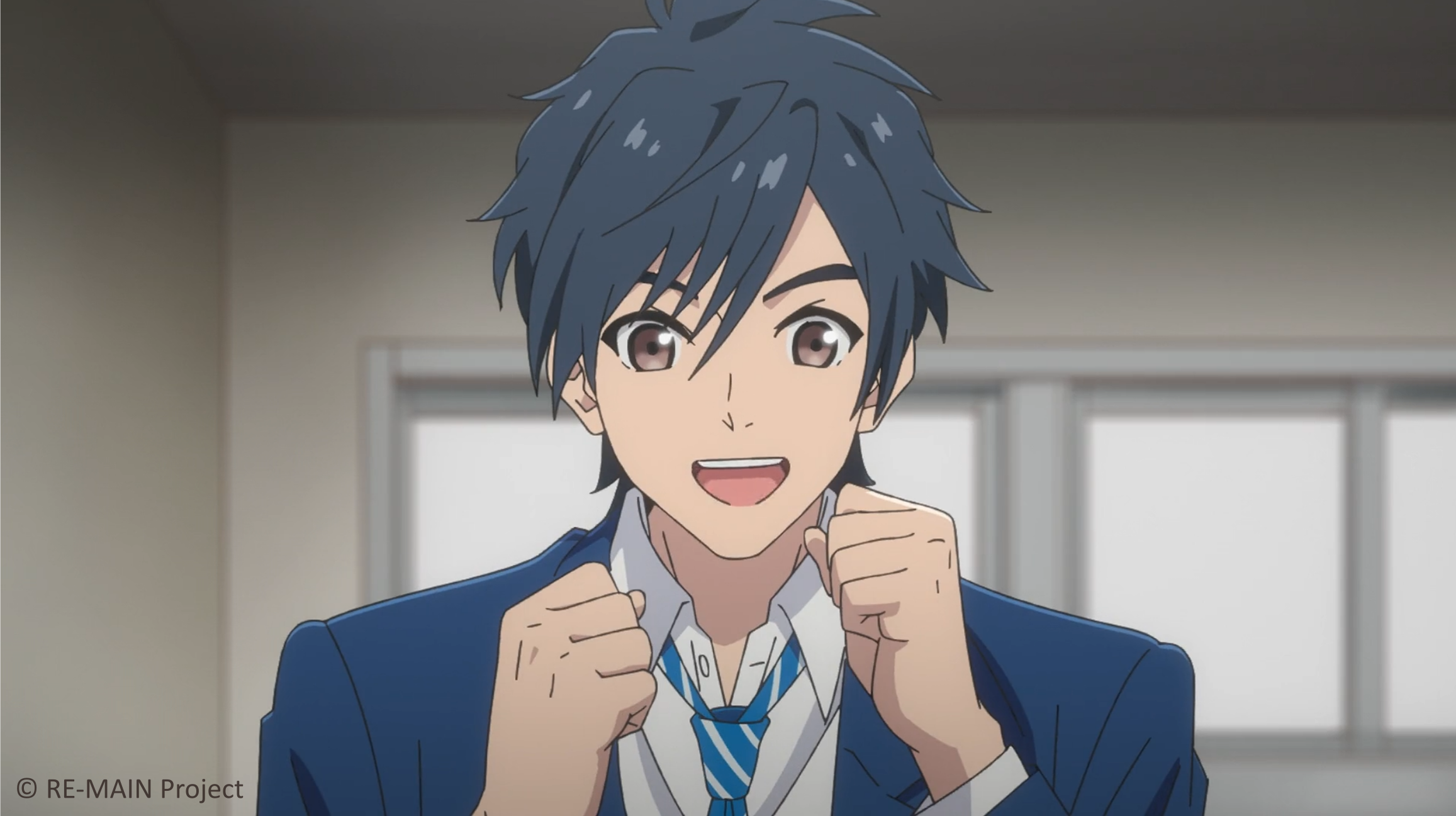
In Oblivion Battery, we only get a few glimpses of Kaname’s former self, his stern face, his controlled demeanor, and his soft, monotonous voice. Most of the information about him is relayed to us through Yamada Tarō’s incessant voice-over. Yamada is the catcher’s classmate, fan, and new teammate. He provided ad hoc interjections and explanatory commentary, and he also functioned as the narrator. (What a handy all-rounder to have on a show!) As such, he gave awe-inspiring information about the Commander and dished out an overwhelming number of pointed remarks on Kaname’s new version. The catcher too took full advantage of the chance to start a new life and reinvent himself: the ‘Supreme Commander’ became an idiotic idiot. Kaname’s new self was ‘hyper’ in almost everything. He was loud, dramatic, and switched pitches so rapidly that my ears rang. Yet, despite his rather flamboyant character traits, he was also kind, sociable, and very perceptive of his teammates’ emotional state.
So far, we have heard how amnesia has affected the lives of the two protagonists. But the two anime contain educational value beyond memory loss. Let’s set aside the plot of the story for now and see what else there is to learn.
Learning Japanese Vocabulary With "Oblivion Battery"
Since Avatar (the 2009 one), we know that repetition is key to learning vocabulary. And thanks to the repeated occurrence of one particular word, it will settle comfortably in your long-term memory: aho, meaning fool or idiot. Especially in the first episodes, there is no shortage of this term in conversations and voice-over, which were always accompanied by practical examples. Visual and auditory learning types will benefit the most, I’d say.
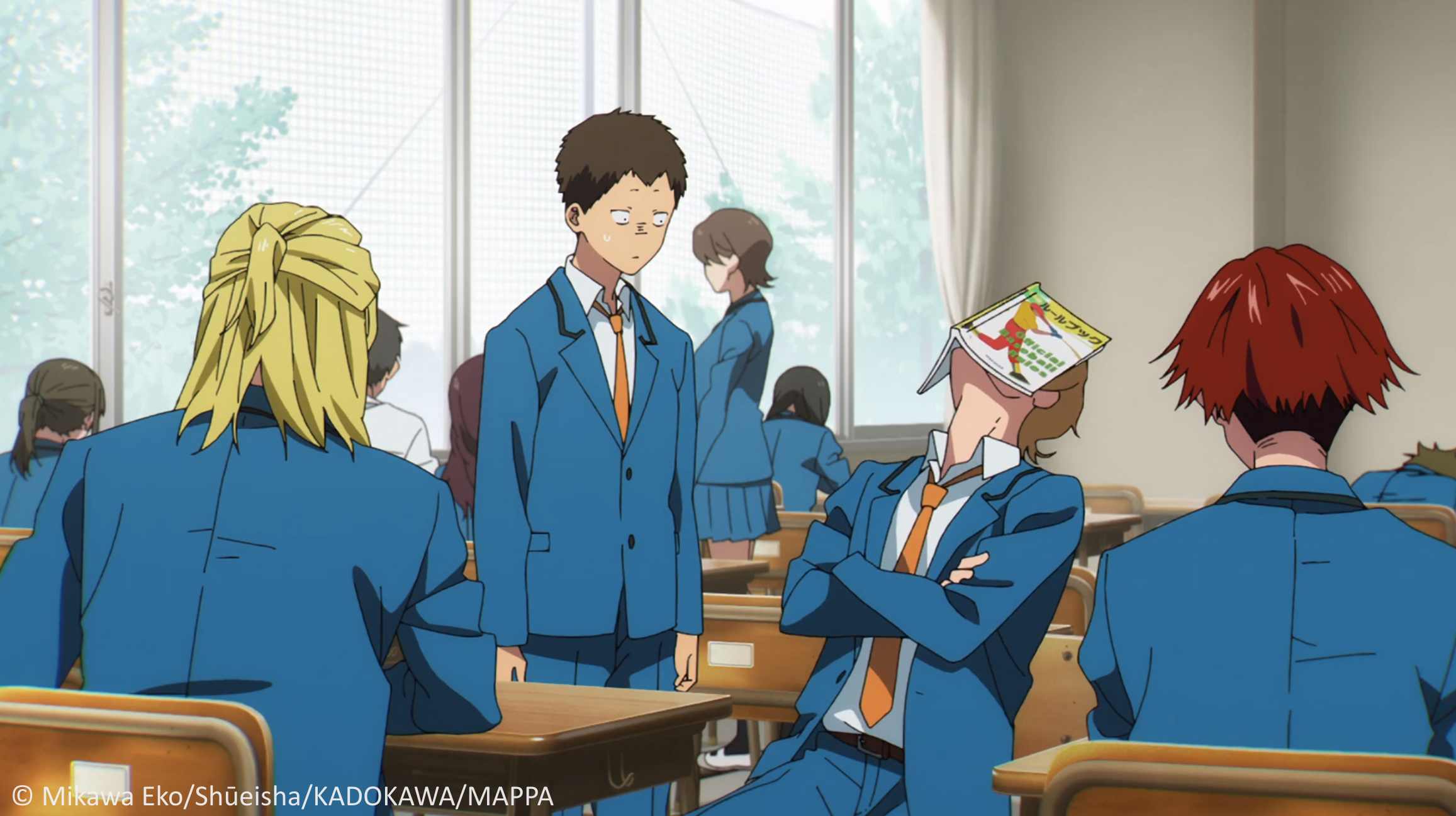
Prior to watching Oblivion Battery, I had high hopes for this anime. Besides expanding my sports (and general) vocabulary, I was looking forward to being entertained. Never would I have guessed that after the appearance of Kaname ‘the idiot,’—and a couple of other characters with idiotic behavior—my desire to continue watching would drop to zero. Additionally, the frequent use of aho drowned out the rest of the vocabulary. Maybe the jokes were just lost on me, and my judgment is too harsh. But to be honest, had Kaname’s behavior not been categorized by his teammates as ‘idiotic,’ my critique would have ended up a lot harsher.
Learning English Wordplay With "Re-Main"
Similar to Oblivion Battery, Re-Main does its best to engrave a single word into our minds, and it does so plainly by using it as the series’ title: Re-Main. Moreover, the term—remain—is used in various situations throughout the series, showing that a single word can be bent and twisted to hold many meanings. First, we learn that the Japanese word rimein (リメイン) is adapted from the English ‘remain.’ Then, Eitarō, a member of the club, explains that remain is an obsolete term for a water polo rule—now called offside. I searched up and down the world wide web but couldn’t find a rule named remain, obsolete or not. The rule as such exists, though. I found it in the World Aquatics Competition Regulation, as “Water Polo Rule 8.10.” In general, it says that unless a player wants to be penalized, they have to stay (that is, remain) behind the ball line within the goal area.
Isn’t it creative to use a sports rule that implies a certain immobility or boundary, slap an English term on it, and upcycle it repeatedly to convey a variety of meanings? For example, Minato lamented that his parents and sister “remained” stuck in the past due to the accident. He also worries that “if my memory doesn’t come back, maybe I’ll remain like this forever.”
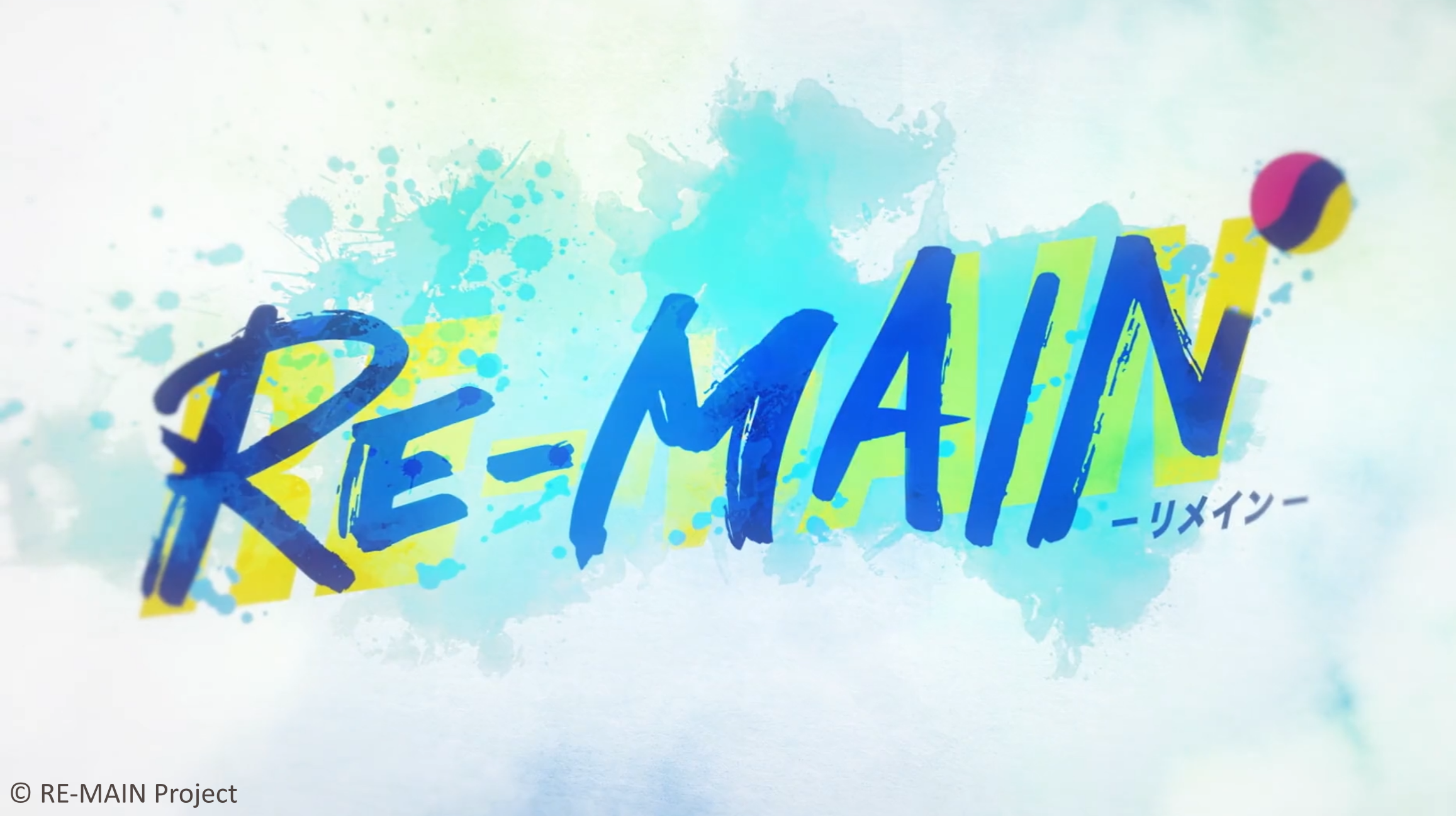
Fortunately, the word isn’t always used in such a boring and predictable way. When Momosaki Riku, Minato’s middle-school teammate, took charge of it, he disintegrated and then reassembled it beyond recognition. In response to Minato’s worry that he might remain as he is now, Momosaki cried out, “Not ‘remain!’ Re-main! Be ‘main’ again! Re-main! You were always our main man.” Now this took my head for a spin. But after I listened to him once more, I marveled at how he leaped from ‘staying where you are’ to ‘being the central figure.’ Quite impressive.
You can find another great example for ‘one word to mean them all’ in Tolkien’s Lord of the Rings. When Bilbo talks to Gandalf for the very first time, “good morning” conveys many meanings.
Not all water polo players are well-versed in playing with words or in languages, for that matter. The team’s new sports jersey is proof of this. Selected with love and dedication, it’s back identified the boys as members of the “water ball” club. Water ball is the literal translation of suikyū, the Japanese term for this sport—suikyū comprises the kanji water (水 sui) and ball (球 kyū). So, in a way, it isn’t completely wrong… .
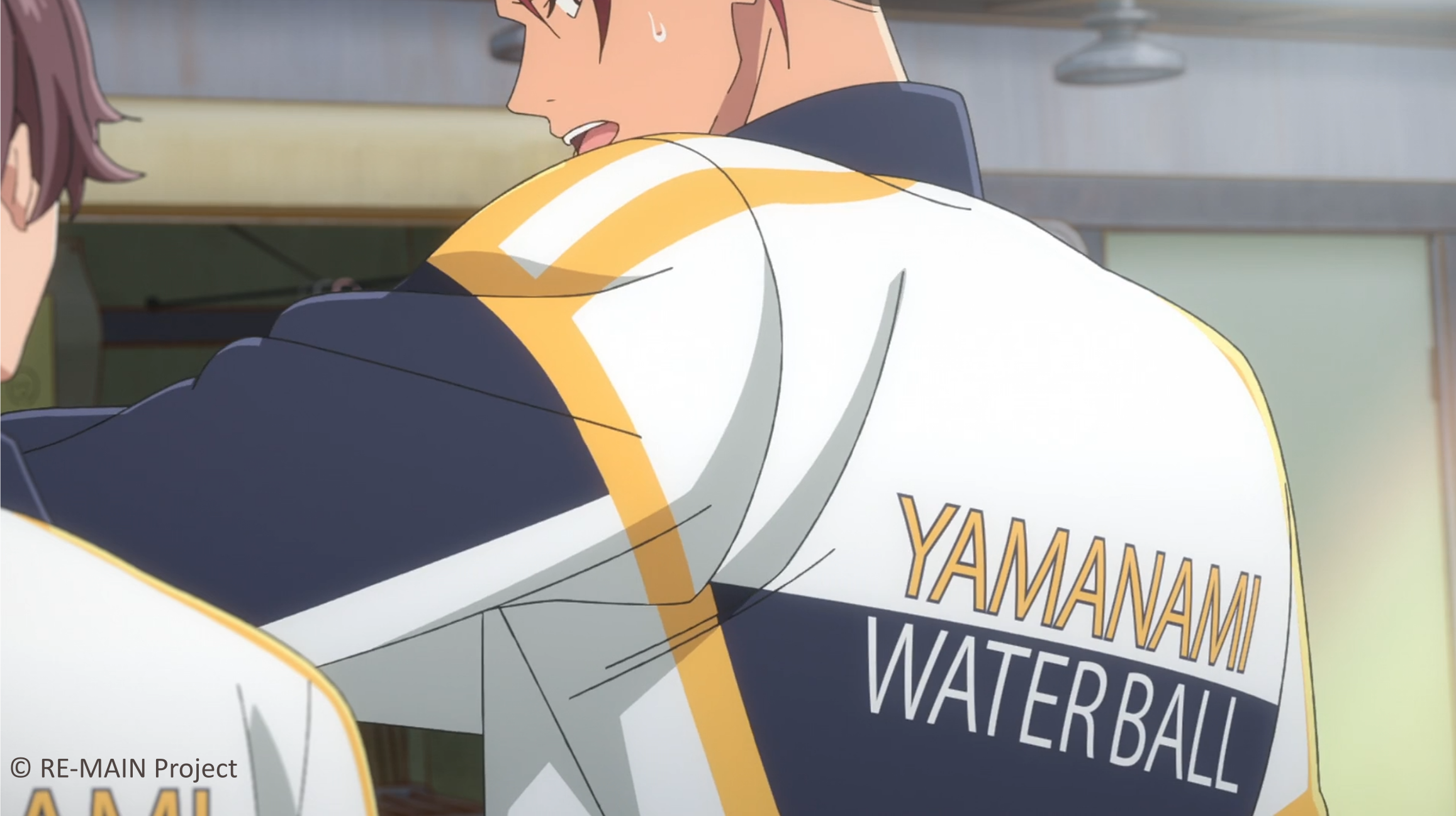
The Teams
Once the two protagonists had decided to pursue their former sports, all that remained was to increase the number of team members to the minimum size required. For water polo, this is seven players; for baseball it’s nine. Unsurprisingly, both teams were quickly fully formed, and the story could continue unhindered. As you can imagine, some members were bursting with fighting spirit, eagerly embracing any challenge, while others were shy and reserved. There were mood makers and brawlers, the experienced ones and the beginners. All of them brought their own backstories, which were ticked off one by one in designated episodes. Nonetheless, there is a decisive difference between the members of the water polo and the baseball club.
Most players on the water polo team wanted to join the club, but not because they were eager to wrestle with other young men over a ball in the liquid element. No, their reasons were mostly sports-unrelated. Minato just wanted to rid himself of the menacing debt. Jōjima longed to reconnect with his father, who also used to play water polo during his high school days, and he hoped that this would give him an opportunity to do so. Amihama wished to beat his brother in sports at least once in his life, and Ushimado was bullied into joining the club. Yet, after several training sessions, an embarrassing defeat in a practice game, and after the boys worked out their individual problems with the help of their teammates, the team stood united and strong and was ready to take on an overpowering foe.
Contrary to the boys in Re-Main, most players in the baseball club didn’t want to join but eventually did so for the love of the game. At first, though, Kaname couldn’t be bothered with sweating, training, and getting hit by the ball. The three top athletes, Yamada, Tōdō, and Chihaya, renounced their involvement with the ball sport for eternity because their plays and souls were once crushed by Kaname the Commander. Tsuchiya couldn’t deal with the strict hierarchical system in the extracurricular sports club environment and took refuge in 2D baseball. Yet, being properly bribed and a bit bullied gave them enough incentive to join, regardless. After several training sessions, a devastating defeat in a practice game, and after the boys worked out their individual problems with the help of their teammates, the team stood united and strong and was ready to take on an overpowering foe.
It’s handy that the stories are so similar. That way, I can comfortably reuse my own sentences instead of thinking of new ones… .
Team Vs. Strategy
The importance of team support for individual athletes is depicted in such an obvious way that it’s impossible to miss, even if you wanted to. Most of the sports anime I watched stressed team spirit in one way or another, so this is nothing new. Yet, it still amazes me when a single mention of the word ‘team’ disperses the oppressive clouds of dejection, lifts everyone’s spirits, and revives the athletes’ will to continue fighting the odds.
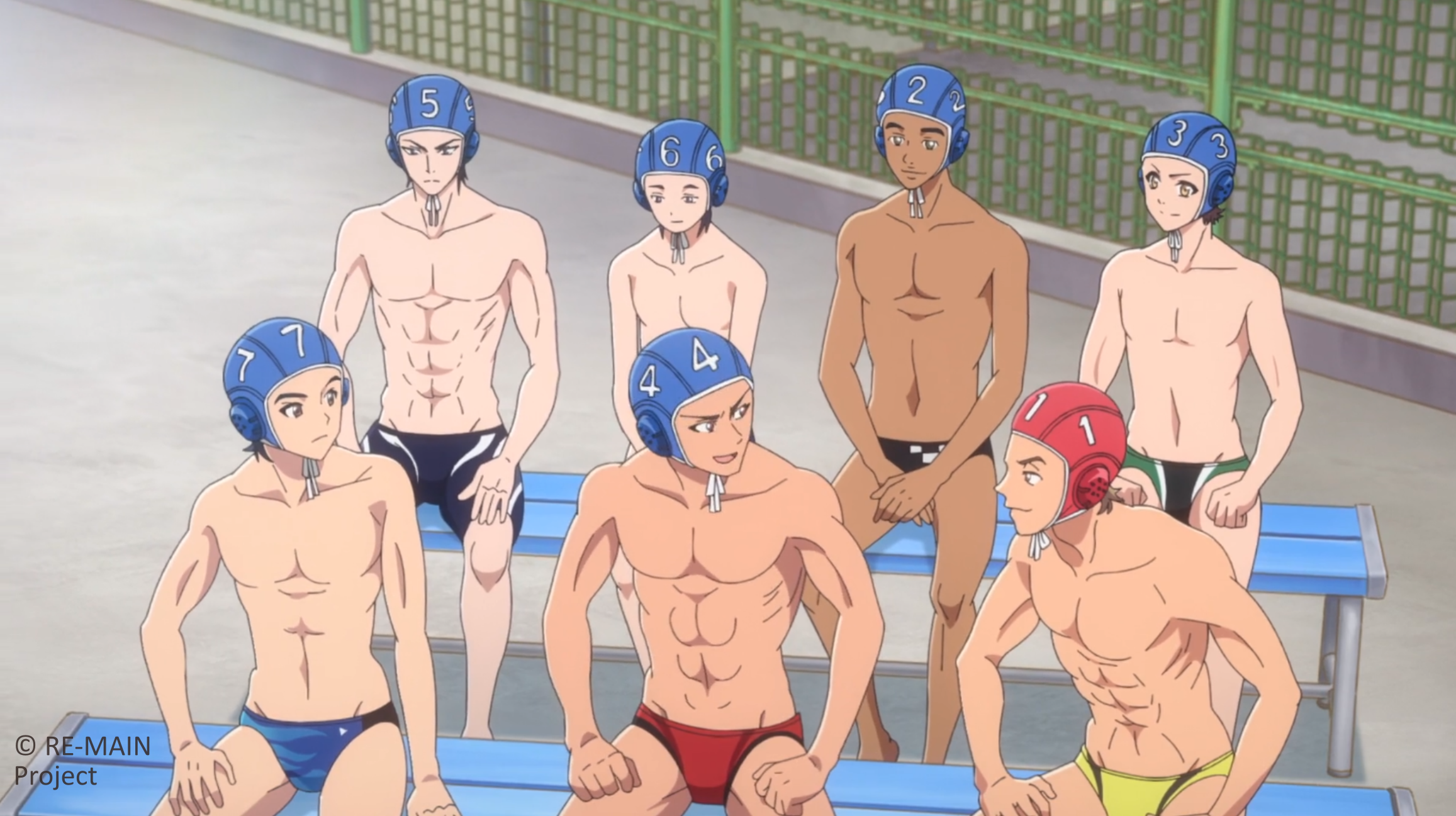
When Minato and his teammates reached halftime without having scored a single point against Momosaki’s team in the anime’s final game, they realized that they were fighting a national contender. The realization hit them hard, and they sat disheartened on the bench, with drooping shoulders, eyes downcast. The stand-in teacher-coach asked if they had any plans for the second half, but, unfortunately, they were out of options. There was no miracle strategy, no unique superskill that could save them. They had given everything in the first half and had now depleted their resources. But then, breaking the dejected silence, Jōjima exclaimed, “Minato-cchi, didn’t you say that we’re a team that wins by working together?” “Yes,” Minato answered. And one by one, the other members chimed in and replied to Jōjima’s question with a determined “yes!” (even though none of the others were asked…). As the frowns made way for beaming smiles and the atmosphere on the bench matched the bright weather, they were ready to continue the battle with renewed fighting spirit. If you want to know how they fared without a plan, you’ll have to watch the anime.
Guts Vs. Brains
In Oblivion Battery, teamwork is important too. But what I found more interesting was the anime’s take on ‘guts vs. brains’ by contrasting two players’ attitudes toward practice and learning as well as dealing with setbacks.
While warming up by playing catch, Tōdō and Chihaya discussed their respective views. “Baseball is all about guts and strength!” Tōdō proclaimed. “How old-school, relying on guts,” Chihaya retorted. “Baseball is about theory and technique.” How should we know who is right? What a pickle! But fret not! Our trusty voice-over character, Yamada, will help you navigate through the confusion. Watching the two throw the ball back and forth alongside us, Yamada admiringly described their footwork and body control and relayed to us that both athletes are on the same level of perfection. Unfortunately, this gives us a tie of 1:1, and doesn’t help us identify the better strategy. A look at how the young men deal with difficulties might shed light on this issue.
Kaname was afflicted with ‘yips light,’ because he got hit on the face protector once. Forthwith, he was too scared to look properly at and catch the high-speed leather bullets fired off by Kiyomine. Thankfully, ‘gutsy Tōdō’ gave him expert advice, saying that “It’s all in your head.” Thereupon, Kaname found the courage in his heart and mind to keep his eyes on the ball and catch it without further ado. What mental strength, right!? Even though the challenge was overcome unreasonably fast, hearing the triumphant shouts of Kaname and his teammates and seeing their gleeful faces filled my own heart with joy and relief. Kaname’s struggle raised the score for ‘guts’ to 2:1. However, the series wasn’t over yet.
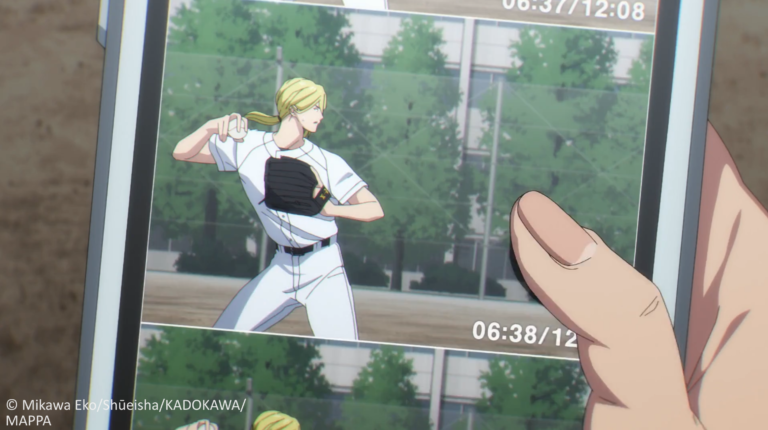
Gutsy Tōdō struggled with full-blown yips as he hadn’t been able to throw the ball to first base since his middle school days. No matter how much he fought mentally or how much effort he put into his relentless training, his condition didn’t improve. This time, it was Kaname’s turn to help him out. But instead of telling him to show even more tenacity, Kaname suggested a change in the throwing technique. The different technique relaxed Tōdō’s mind and arm, and his aim got better and better with every throw. Additionally, Chihaya filmed Tōdō so that he could watch it later and adjust his form and throwing technique. So, it seems that in situations where guts are insufficient, the brain needs to step in, settling the score at 2:2.
Mangaka, Mikawa Eko, on whose manga the anime is based, most likely tried to tell us that the best approach is the middle ground. And I must agree. In sports, guts and brains are two sides of the same coin, after all.
A Welcome Reset?
In Re-Main as well as in Oblivion Battery, amnesia gives the two boys the chance to reset and start anew. Pushed by the pressure to perform, they developed unpleasant character traits. Chasing victories, the boys transformed into people even they themselves ended up disliking. Thus, the stories tell us that being competitive and wanting to win is one thing, but that it’s not desirable to achieve this by forsaking personal relationships or being mean to others. Once we had witnessed the pure forms of both—old and new—the boys’ memories returned, and the two separate character traits merged. The combined versions contain the best of both personalities: elite athletic abilities and a considerate attitude toward the team. And so we learn that, just as with guts and brains, the golden mean is the best option. After all, the past made our present, so why deny it in its entirety?
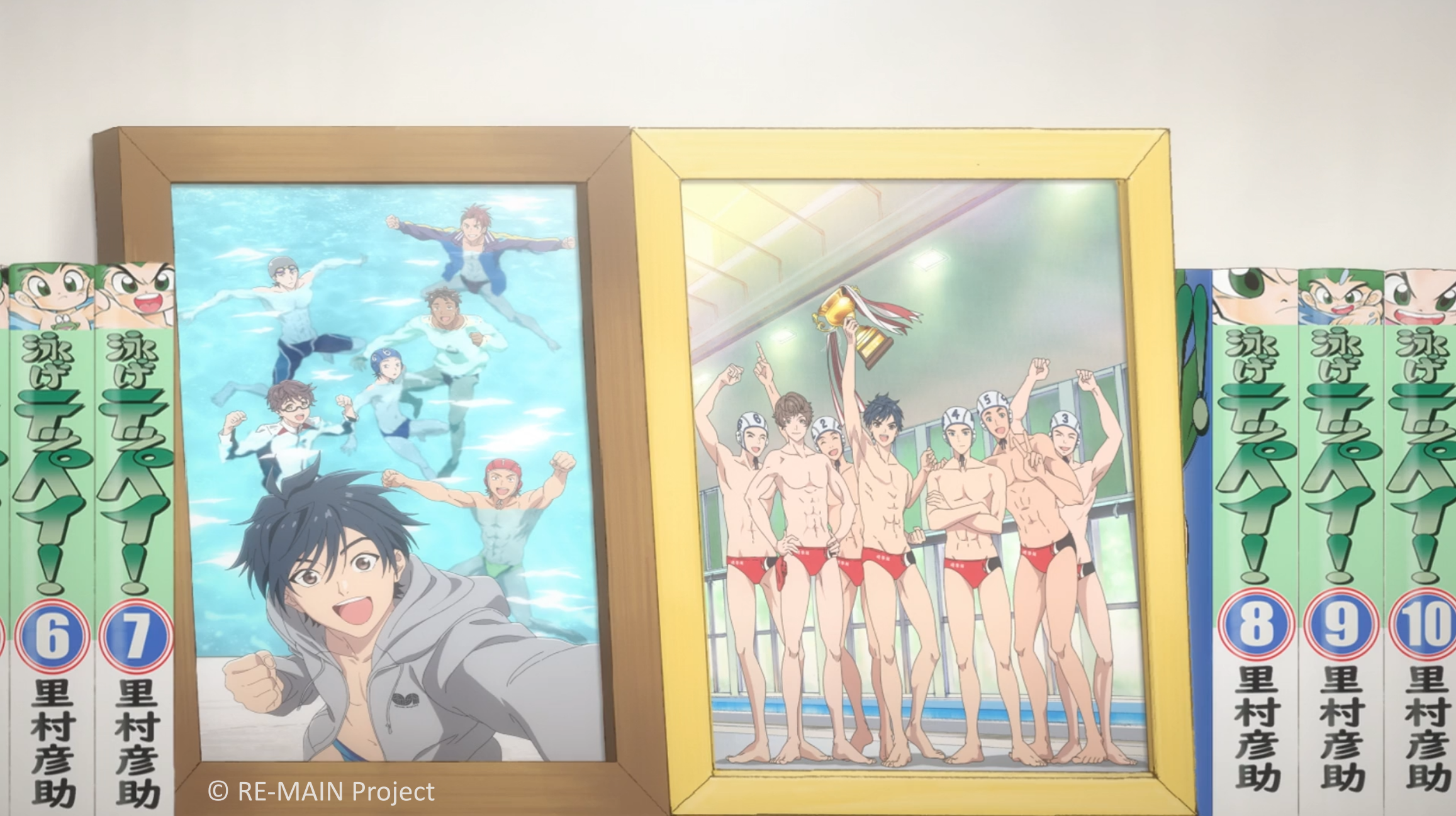
Re-Main is a lighthearted and fluffy story until the former Minato returns. From then on, it takes a somewhat darker and gloomier road. Nonetheless, it’s entertaining without putting too much strain on the viewers’ emotions. If the humor in the first couple of episodes of Oblivion Battery is up your alley, you’ll find this anime entertaining right from the bat, though you might miss the ‘best’ of Kaname’s idiotic side in later episodes. For me, this was a plus, though, because once his constant attempts at comic relief had leveled out somewhat, I could sit back and enjoy watching the show. The final game in Re-Main was nice; it lacked tension, though. On the other hand, the games in Oblivion Battery were a delight to watch. My wish for season two, if there should be one, is that the boys spend more time battling on the diamond than struggling with their individual challenges off the field.
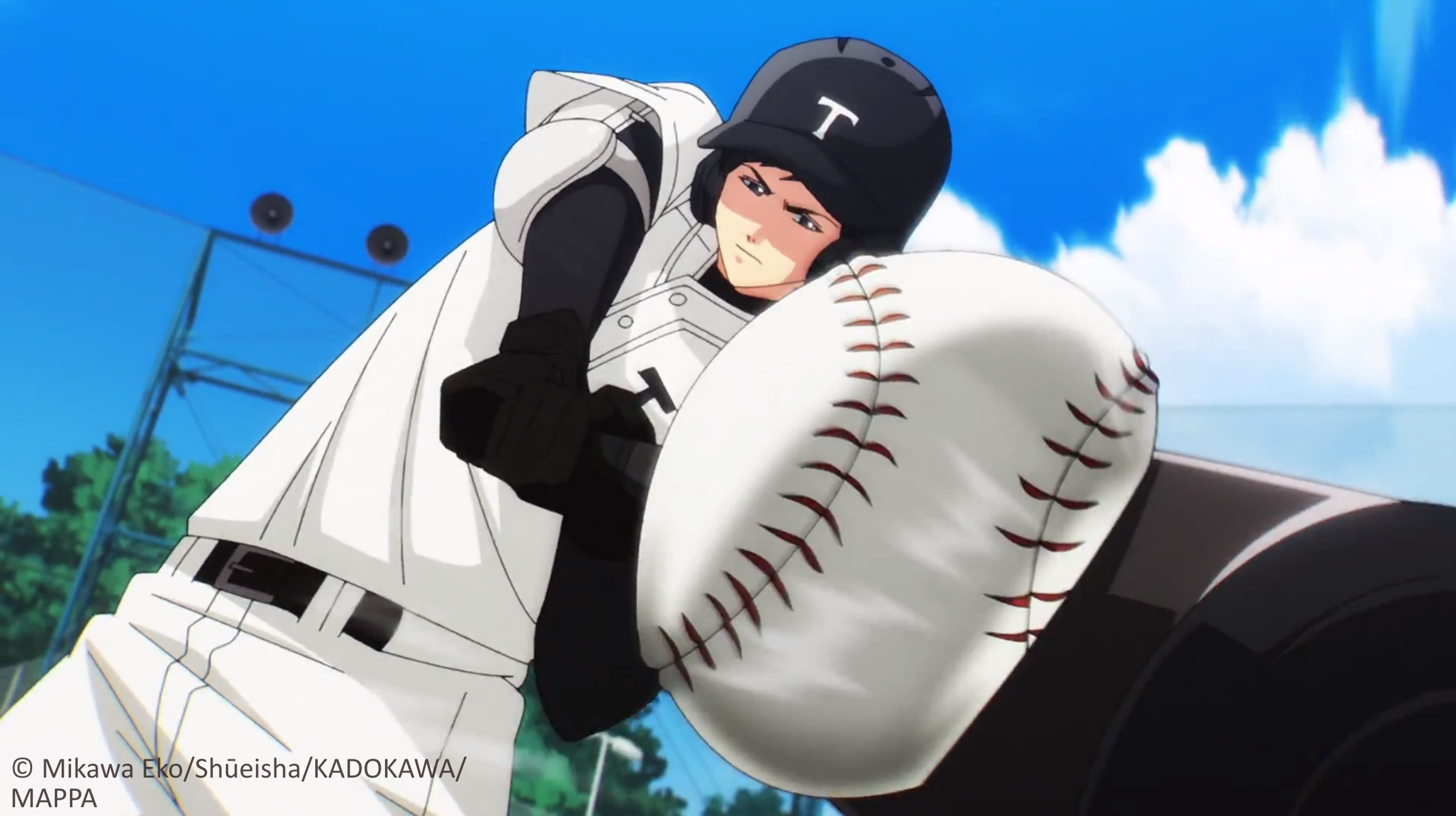
Links:
- Official website Re-Main: re-main.net
- Offical website Oblivion Battery: boukyaku-battery.com
- Manga Bōkyaku Battery
- The Japan Swimming Federation
Subscribe to never miss a deep dive into the exciting world of sports anime, manga, and manhwa!

